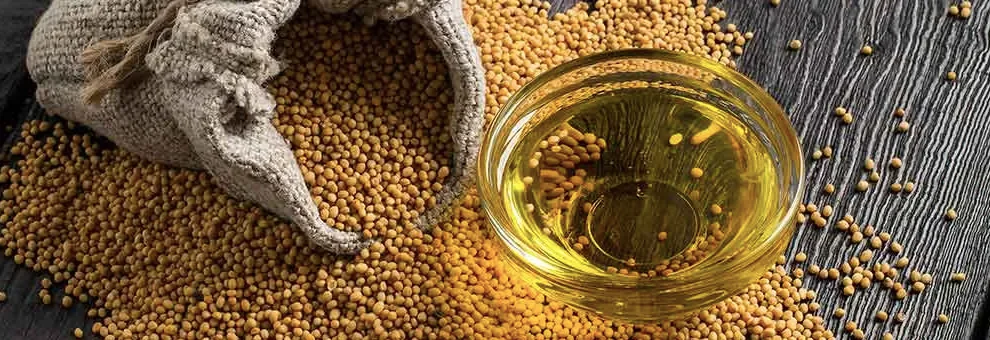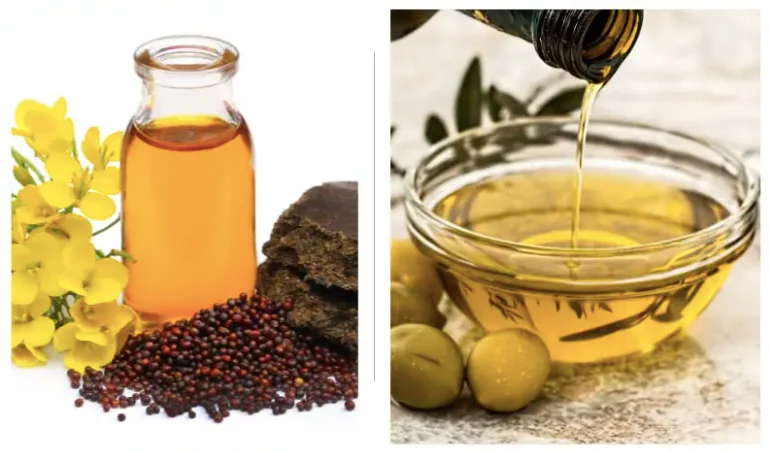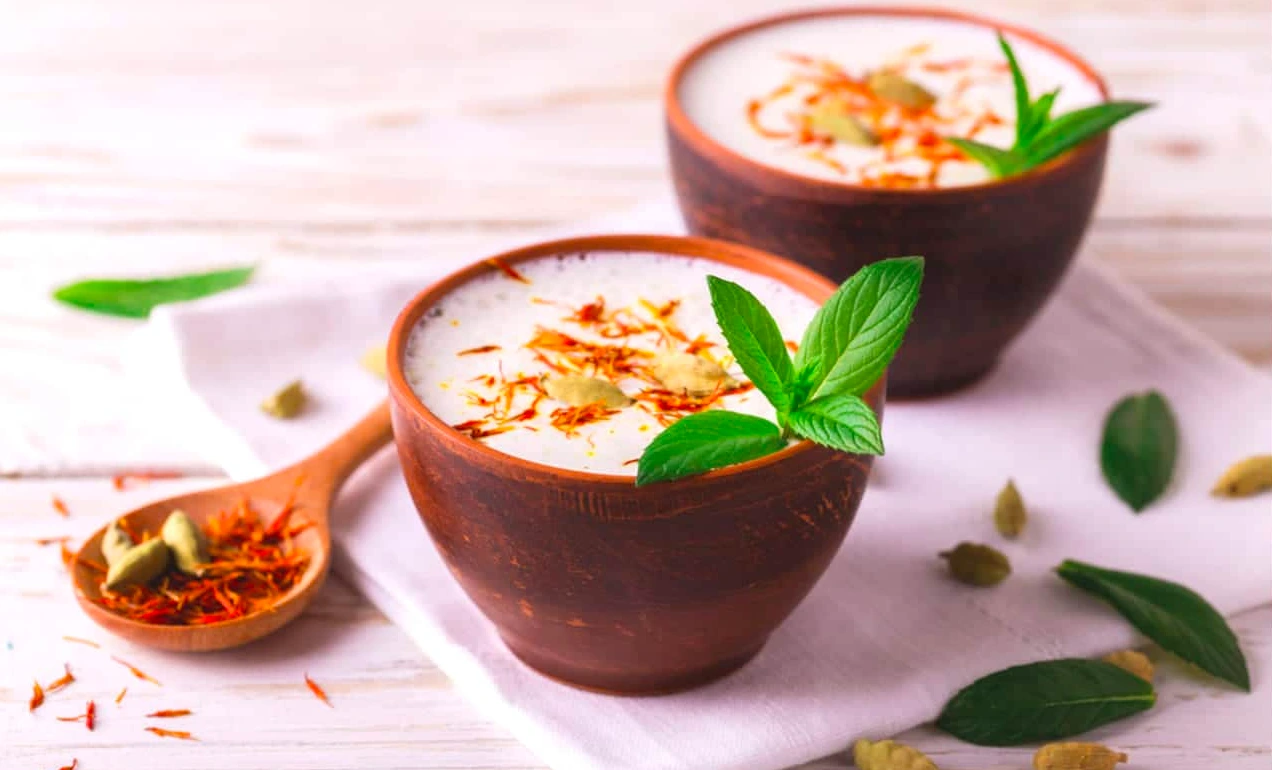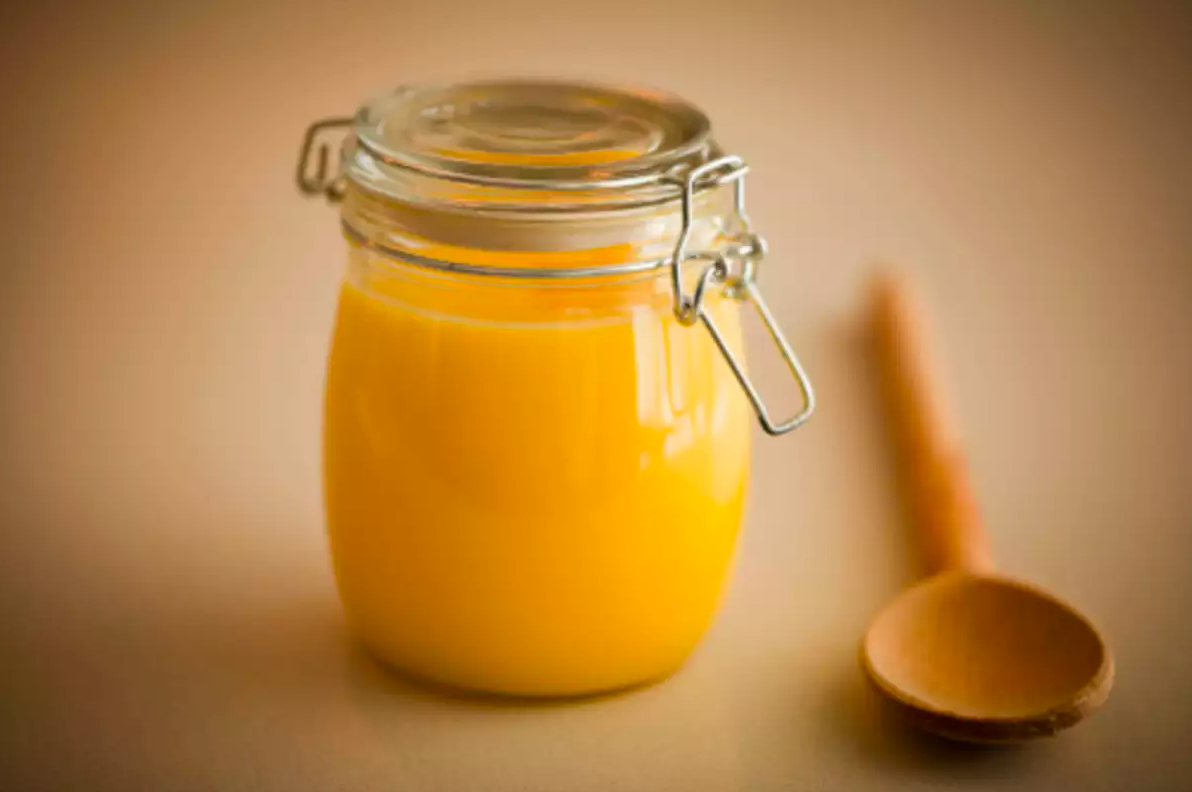The two oils that are most frequently used in modern kitchens are olive oil and mustard oil. Olive oil has become a holy grail for the majority of fitness enthusiasts as a result of the numerous people who have preached about its advantages. It contains a sufficient amount of dietary fat, which is crucial for preserving the health of your heart.
However, the use of mustard oil is related to Ayurveda and has been practised in Indian households for ages. The oil is easily recognised by its strong scent and dark yellow colour.
For you to make an informed choice, we are here today to put an end to the debate between olive oil and mustard oil.
Comparing Mustard Oil and Olive Oil
1. Unsaturated Fats
Unsaturated fats are essential to our health because they lower blood cholesterol levels, reduce inflammation, and maintain healthy heart rhythms, among other positive effects. Compared to olive oil, mustard oil has a higher percentage of monounsaturated fats.
An excellent combination of natural antioxidants and essential fatty acids, both of which are very helpful in maintaining a healthy heart, can be found in mustard oil. It contains a lot of healthy fats that are good for the body, including polyunsaturated fatty acids, mono-saturated fatty acids, and others. This oil encourages the production of good cholesterol while preventing the accumulation of bad cholesterol.
2. Omega Fatty acids
There are many omega fatty acids in mustard oil. These acids assist in lowering cholesterol, reducing the risk of heart disease, and preventing artery blockage. Olive oil has about half as many fatty acids as mustard oil.
The body requires this oil as a vital source of omega-3 fatty acids and other good fats. Cooking oil’s blend of healthy fatty acids and oils not only improves flavour but also lowers blood fat levels.

3. Anti-inflammatory properties
Our bodies naturally respond with inflammation to heal and defend ourselves from harm. Chronic inflammation, however, is dangerous. Anti-inflammatory food products aid in the prevention and recovery of inflammatory wounds. While olive oil has anti-inflammatory qualities, mustard oil has a lot of them.
4. Minerals content
Our body needs minerals to maintain the health of our bones, muscles, heart, and brain. Olive oil contains essential vitamins that are hard to get from everyday food sources, whereas mustard oil has adequate amounts of calcium. Iron, calcium, and potassium are all found in olive oil.
Nutritional Chart comparing Mustard oil and Olive oil (Value per 100g )
| Nutrient | Mustard oil | Olive Oil |
| Energy | 884 Kcal | 884Kcal |
| Fats | 100g | 100g |
| Saturated Fats | 11.58g | 14g |
| Unsaturated Fats | 59.182 | 73g |
| Poly Unsaturated Fats | 21.21g | 11g |
| Sodium | 0g | 2mg |
| Potassium | 0g | 1mg |
| Iron | 0g | 0.5mg |
| Vitamin E | 34 mg | 14mg |
| Vitamin K | 5.4mcg | 62mcg |
5. Other Health Benefits
Other health advantages of mustard oil include its ability to increase red blood cell production by lowering cholesterol and improving red blood cell membrane structure. Vitamin E provides the necessary nutritional value and strengthens the immune system. This oil tends to relieve sprains, aches, and pains associated with rheumatism and arthritis. Olive oils are the best when it comes to their health advantages, which include a decrease in coronary disorders and complications from type 2 diabetes.
6. Shelf life of oil
Both olive oil and mustard oil turn rancid after being exposed to oxygen repeatedly for a while. Olive oil can be stored for 20 to 36 months while mustard oil can be kept for 9 to 12 months.
7. Taste
Cooking oil’s flavour shouldn’t be so strong that it overpowers the flavour of the food. Olive oil has a mild taste and almost no smell, whereas mustard oil has a very strong smell and flavour and adds a strong flavour to food as well.

Due to its ideal fatty acid composition, the majority of researchers have concluded that mustard oil is healthier than olive oil. It is excellent for improved heart health because it contains enough omega-3 and omega-6. This ideal ratio is absent from olive oil, in addition to being expensive.
Summary: Olive Oil vs Mustard Oil
| Olive Oil | Mustard Oil | |
| Obtained from | Olive seeds | Mustard seeds |
| Origin | Mediterranean regions | North Indian regions |
| Types | Virgin Lampante oil Refined oil | Fatty vegetable oil Essential oil Oils involves infusing seed extract with other vegetable oils |
| Flavor | exquisite flavor | sharp, nutty flavor |
| Rich in | high levels of calcium and iron, vitamins A, C and monounsaturated fatty acids in high levels – natural anti-oxidants | high levels of mono-saturated fatty acids; it contains 30 per cent protein, calcium and natural anti-oxidants |
| Mainly Acts as | All-round Benefactor | Anti-bacterial |
| Health Benefits | 1. Reduce Breast Cancer Risk 2. Maintain Healthy Cholesterol Levels 3. Extra Virgin Olive Oil protects against Alzheimer’s Disease 4. Helps Prevent Acute Pancreatitis 5. Protects the Liver 6. Protects from Ulcerative Colitis 7. Helps Prevent Stroke | 1. Reduces Risk of Cardiovascular Disease 2. Stimulates Digestion 3. Reduces Risk of Cancer 4. Antibacterial, Anti-fungal and Anti-inflammatory Action 5. Relieves Cold and Cough 6. Used for Massaging 7. Good for Skin and Hair 8. Relieves Joint Pain |
Few Similarities between Mustard Oil and Olive Oil:
Both olive and mustard oils share many health benefits, such as their antibacterial properties, which make them suitable for use by the body. Additionally, both have a propensity to lessen heart-related issues.
The Bottom Line
Both olive oil and mustard oil have a sufficient number of health advantages and a proportionate amount of dietary fats. The immune system is strengthened by the antibacterial and anti-inflammatory properties of mustard oil. Olive oil, on the other hand, has a higher concentration of monounsaturated fatty acids and more antioxidants.
Many people don’t know how to use olive oil and occasionally substitute it for regular refined oil, which is extremely harmful. Therefore, choosing mustard oil is the right and much healthier choice to make when considering the Indian cooking scenario. We all know how to use it, it is affordable, and it is easily accessible. Additionally, the flavour and taste go well with Indian dishes.
Read more:
Why cold pressed oil is better than refined oil?
What is Castor oil? Interesting Arandi Oil Uses and more
गुड़हल का तेल: इसके फायदे और जानें इसे घर पर कैसे बनाएं





